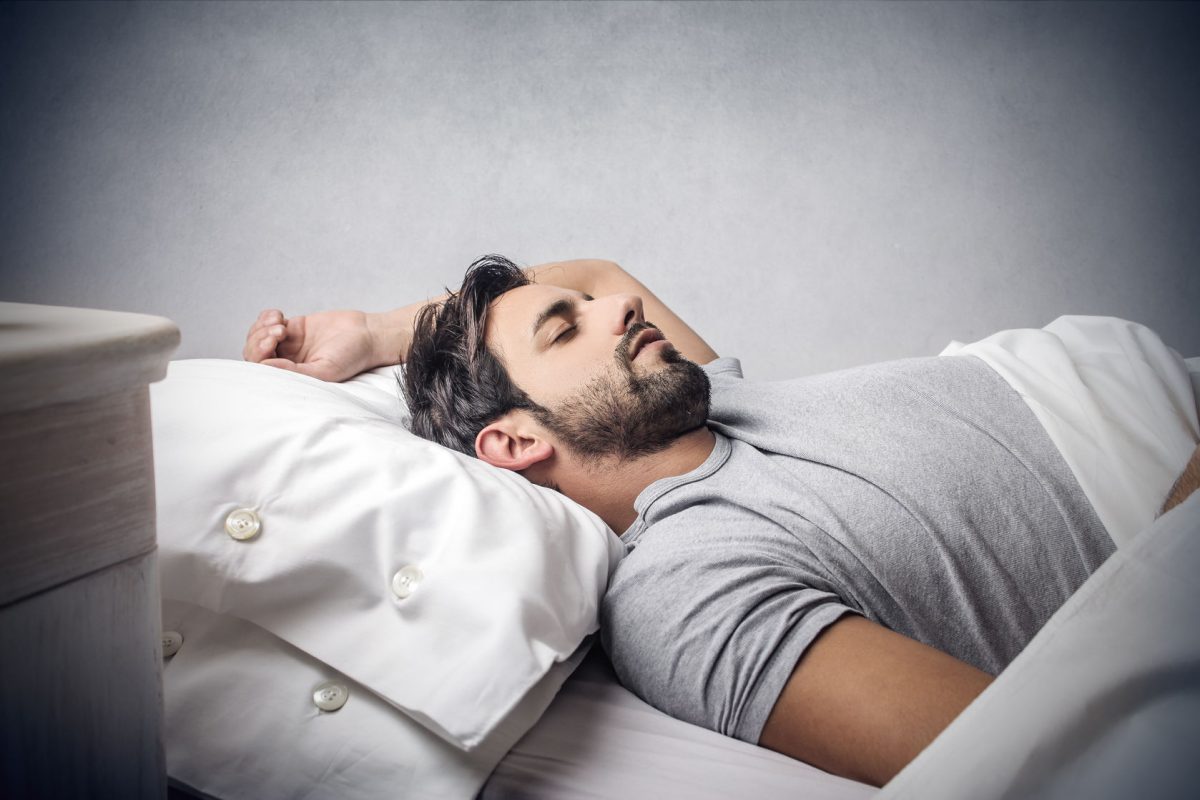How Many Hours of Sleep Do I Need?

Many have heard or used the old adage, “you can sleep when you’re dead.” A lack of sleep can move a person more rapidly toward that final end. Sleep is an essential element of proper physical and mental functioning, and deserves as much attention as a great diet and exercise. This article will demonstrate the importance of sleep, what happens to you if you don’t get enough of it, the amount of sleep a person needs, as well as how to better achieve restful sleep on a regular basis.

Why Is Sleep Important?
Sleep plays one of the most vital roles when it comes to maintaining good health and overall well-being. Quality sleep (or lack thereof) has a major effect on mental and physical health as well as quality of life. Sleep helps people function at a higher level of health in the following ways:
- Supporting Organ Health is one of the benefits of sleep. While a person is sleeping, the vital organs of the body, especially the heart and circulatory system, are given a chance to recharge and rejuvenate as well, making them stronger and better able to perform while the body is awake.
- Learning and Clear Thinking are enhanced through sleep as well. A proper amount of sleep not only makes a person more alert and better able to focus, but memory storage and recall are also improved when the brain is well-rested.
- Mental Health and Mood are additional benefits of sleep. Anger, aggression, impulsive behavior, mood swings, depression, and a lack of motivation are all negative mental health issues which are often related to a lack of sufficient sleep.
- Hormone Balance is greatly affected by sleep as well. Proper amounts of sleep help to maintain such hormonal functions as appetite, sex drive, stress level, and energy.
- The Immune System and Wound Healing function at a higher level when a person gets enough sleep as well. The production of healthy antibodies to fight off illnesses and infection requires regular sleep in order to keep up with the body’s demand.
- Daytime Performance and Safety are at a much higher level when people get adequate amounts of sleep. Not only will a well-rested person get more done, but that same person is less apt to have lapses in judgment which tend to lead to safety issues.
WebMD cites an additional 9 surprising ways sleep benefits overall health.
These aspects of everyday life are all greatly enhanced or maintained through obtaining the necessary amount of sleep to keep overall bodily functions working more effectively and efficiently.

What Are the Signs That Someone Is Sleep Deprived?
How does a person know if they are not getting enough sleep? In essence, bodily functions begin to become limited or might fail entirely without enough sleep, but there are plenty of signs and signals that occur before a complete failure or shutdown takes place. Here are the major signs to look for when someone is sleep deprived:
- Excessive sleepiness
- Yawning
- Mood swings
- Depression
- Irritability
- Daytime fatigue
- Forgetfulness
- Headaches
- Listlessness
- Staring into space
- Delayed mental or physical reactions
- Inability to focus or concentrate on a task
Though many attempts to reverse these conditions through the use of stimulants such as caffeine, there are other functions taking place behind the scenes which cannot be reversed by stimulants or other supplements. Without sleep, symptoms will worsen and increase in number, but if chronic sleep deprivation continues, greater and more profound damage will be done to the person’s body.

What Are the Effects of Sleep Deprivation?
The overall effects of chronic sleep deprivation are critical. Sleep deprivation affects every bodily system. As the condition worsens limited function deteriorates to the complete shutdown of these vital systems and can eventually cause irreparable damage. Examine how sleep deprivation effects each of the body’s systems.
Central nervous system
The central nervous system is the communication structure in your body. Chronic sleep deprivation disrupts the flow of information between your brain and various parts of your body. If signals are impaired, then reaction time is slowed. Without sleep, the neurons in your nervous system become lethargic and lead to a wide variety of increasingly critical functions such as:
- Slowed motor skills
- Decreased coordination
- Reduced creativity
- Impulsive behavior
- Depression and mood swings
- Irritability and paranoia
- Hallucinations
- Thoughts of suicide
One of the most serious effects of sleep deprivation on the central nervous system is the development of microsleep. Microsleep is a condition in which the body simply shuts down in order to reboot, if you will, when microsleep occurs, it is completely beyond conscious control and can occur at the very worst moments such as driving or flying and it has resulted in numerous fatalities.
Immune system
Try to imagine if the fire department, ambulance, police force, National Guard or armed forces were no longer provided with the necessary funding, tools and equipment to do their jobs. Essentially, sleep deprivation does that very thing to the immune system. Without sleep, the body’s defense forces become fewer in number, weaker and unable to defend the body against foreign invaders. In the short term, that means more colds and flu as well as slower wound healing, but over the long term, more serious illnesses that are difficult to cure or incurable can occur.
Digestive system
Even the digestive system is damaged through sleep deprivation. Besides digestive issues like Gastroesophageal reflux disease (GERD), irritable bowel syndrome (IBS), and intestinal hyperpermeability or leaky gut, the risk of becoming overweight or obese is also much higher. Because sleep deprivation affects the hormone production of leptin and ghrelin, which help to maintain appetite balance, not only is extensive weight gain a possibility, but weight loss becomes nearly impossible to achieve.
Beyond the above issues, sleep deprivation also prompts the body to release higher levels of insulin. Insulin, in turn, helps to regulate blood sugar levels. When the body becomes insulin resistant, the risk of developing type 2 diabetes increases significantly.
Cardiovascular system
The heart and blood vessels require an adequate amount of sleep in order to maintain blood sugar levels, blood pressure and the level of inflammation not only in the heart but in the blood vessels as well. When the cardiovascular system is deprived of its rejuvenating function during sleep an individual’s risk of heart attack and stroke are significantly increased.
Endocrine system
Though a few hormonal functions were discussed in relation to their function within other body systems, it is necessary to note that the endocrine system is really in control of hormone production. Without at least 3 hours of uninterrupted, REM sleep, hormone production is significantly reduced. Not only are hormones like estrogen and testosterone inhibited, but hormones that help to maintain mood, immunity and healing as well as human growth hormone (HGH), which is essential when it comes to child development.
For more information on how a general lack of sleep can make you sick, check out this article by the Mayo Clinic.

How Much Sleep Does Someone Need?
There are various amounts of sleep necessary for different stages in life. Here is a breakdown of how much sleep is needed in each of the stages of life.
Babies and Children
Babies and children not only require more sleep, but they are also more dramatically impacted by missing as little as 30 to 60 minutes of sleep in a 24 hour period. Paying close attention to sleeping habits and patterns of younger children and babies is essential to proper development and overall health. Here are the amounts of sleep necessary for the various ages in this category:
- Newborns to 3 months need between 14 and 17 hours of sleep; not less than 11 and not more than 19 hours.
- Infants 4 to 11 months need between 12 and 15 hours of sleep; not less than 10 and not more than 18 hours.
- Toddlers 1 and 2 years old need between 11 and 14 hours of sleep; not less than 9 and not more than 16 hours.
- Preschoolers aged 3 to 5 need between 10 and 13 hours of sleep; not less than 8 and not more than 14 hours.
- School aged children between 5 and 13 need between 9 and 11 hours of sleep; not less than 7 and not more than 12.
Adolescents
Adolescents, like younger children, are also more significantly impacted by missing sleep. Psychological development and the ability to cope with the intensity of hormonal changes during this period make it critical for adolescents to not miss more than an hour or two of sleep in a 24 hour period. Adolescents need between 8 and 10 hours of sleep; not less than 7 and not more than 12 hours.
Adults
Adults are typically the worst abusers when it comes to not getting enough sleep. Pressures, commitments, worries and other factors tend to cause adults to push sleep aside in order to carry out some other function. Occasional nights, with less sleep than necessary, is a normal part of being an adult, but when it becomes chronic behavior to miss sleep, serious consequences will follow. Adults need between 7 and 9 hours of sleep in a 24 hour period; not less than 6 and not more than 11 hours. Older adults, who are mostly sedentary or inactive, often function fine with between 6 and 8 hours of sleep nightly, but they also tend to take naps throughout the day.

Tips on How To Get Better Sleep
Some individuals might understand the need for getting more sleep but are simply unable to achieve it. For those people, natural sleep aids and some daily habits are often needed to help them fall asleep and stay asleep throughout the night. Here are several considerations to keep in mind.
Daily Habits
What a person does before bed often inhibits or encourages how quickly someone gets to sleep and how long that person stays asleep throughout the night. A person who struggles to get to sleep should try:
- Stay consistent with a regular sleep cycle even on the weekends
- Control your exposure to light (especially blue light from televisions, computers, and smartphones) in the last hour leading up to bedtime
- Daily exercise at some point during the day
- Limit caffeine, sugar, alcohol, and nicotine in the hour or so before bedtime
- Make use of stress management tools to wind down during the hour before bed
- Try incorporating Ayurvedic medicine for sleep into your diet – these herbs are powerful natural remedies that have been studied for their ability to improve sleep quality
- Improve the environment by keeping your room dark, cool and quiet
- A warm bath or shower before bed can help relaxation
- Boost melatonin by getting at least 20 minutes of bright sunlight during the day and complete darkness during the night
- Do not ever look at the clock if you awaken during the night (you will tend to start doing mental math concerning how many hours before you have to get up and will not be able to go back to sleep)
- Consider investing in a memory foam mattress that regulates body temperature and maintains good spine alignment
Natural and Herbal Solutions
Your brain and body might need a little bit of a boost beyond the habits listed above. One of the worst things (except in extreme circumstances) is to take an over-the-counter sleep aid. Before taking any sort of sleep aid, consult a health care provider and try every other option first. Here are a number of natural and herbal solutions to consider first:
- Make sure you have enough calcium and magnesium in your diet
- Diffuse essential oils like: lavender, bergamot, sandalwood, frankincense or mandarin in your bedroom or place a couple of drops on the edge of your pillowcase.
- Drink a warm cup of tea (chamomile, valerian root or passion flower) 45 minutes to an hour before bed
- Eat a banana 45 minutes to an hour before bed (some people get heartburn from this)
- Consume foods with cumin, nutmeg or saffron in them at dinner time or an hour or so before bed
- A glass of warm milk with or without one of the above spices mixed in can also help a person get to sleep.
For more natural herbal sleep aids, please check out this article by WebMD.
By utilizing various solutions and habits that work well for a specific individual nightly, getting to sleep and sleeping through the night should become a regular and consistent part of any daily health routine. Be aware that getting enough sleep is as important to overall health as diet, exercise or personal hygiene, use it to maintain better health.
